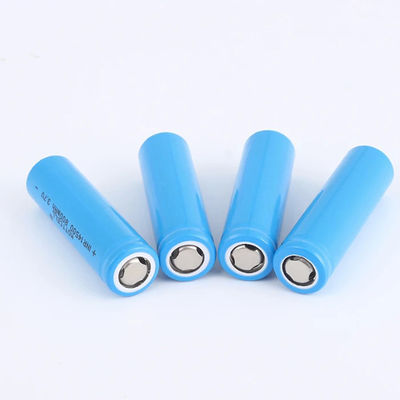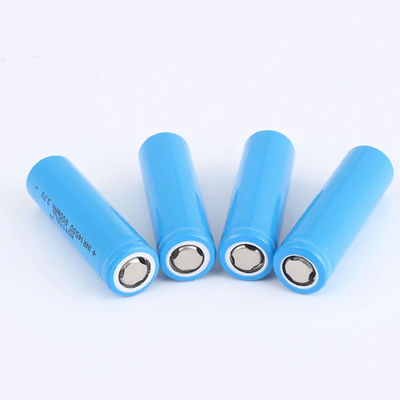|
Detail Information |
|||
Product Description
Reliable Sodium Ion Battery 26650 With Long Cycle Life For Industrial Energy
Product Description:
Sodium-ion batteries are becoming a popular alternative to lithium-ion batteries for energy storage solutions. Instead of using lithium ions, these batteries utilize sodium ions. There are many advantages that sodium-ion batteries possess, such as lower cost and greater availability of sodium resources compared to lithium. Additionally, they have excellent safety properties and have the potential to deliver high energy density and long cycle life.
Despite the encouraging properties of sodium-ion batteries, further research and development is still necessary to improve their performance and increase their commercial viability. It could lead to their application in sustainable energy storage, such as renewable energy, electric vehicles and grid-level energy storage. This will pave the way to a more efficient and sustainable energy supply for the future.
Features:
Sodium-ion batteries are an attractive option for various applications due to their advantageous characteristics. Their low cost makes them a cost-effective alternative to lithium-ion batteries, as sodium is more plentiful and economical. These batteries also show excellent safety and stability, virtually eliminating the risk of thermal runaway or explosion.
In addition, sodium-ion batteries have a high energy density, which boosts their capacity to store a substantial amount of energy in a compact size. Furthermore, they have a remarkable cycle life, with no significant capacity losses after numerous charging and discharging cycles.
Given the aforementioned qualities, sodium-ion batteries are a trusted choice for renewable energy storage, electrical vehicles and grid-level energy storage. They promote a more sustainable and efficient energy landscape.
Technical Parameters:
| Attribute | Value |
| Energy Density | 140Wh/kg |
| Recharge Time | Short |
| Size | 26650 |
| Capacity | 2300mAh |
| Cut-off Discharge Volt | 1.5V |
| Cycle Life | Long |
| Nominal Voltage | 3.2V |
| Discharge rate | ≥4C |
| Operating Temperature | -20~55˚C |
| Safety | High |
Applications:
Sodium-ion batteries are gaining increasing attention in the world of batteries, for good reason. The cost-effective and abundant availability of raw materials such as sodium make them very appealing for a range of applications.
The first and foremost purpose of these batteries is to store and use renewable energy, like solar and wind. This way, it can be used more efficiently and not go to waste.
In addition, they are being considered for use in electric vehicles, thus providing a cheaper, sustainable source of energy.
Their potential to be used on a larger scale, such as in grid-level energy storage, is also promising. This could help to provide stability and reliability to the power grid.
Expanding the application scope, sodium-ion batteries are also suitable for use in portable electronics and wearable devices. With ongoing research and development, sodium-ion batteries play a key role in paving a way for a more sustainable and energy-efficient future.
Packing and Shipping:
Sodium ion batteries should be packaged in accordance with the following guidelines:
- Use an appropriate, sealed, non-flammable container with a secure lid to ensure the battery cells are safe and secure.
- Ensure the container is properly labelled with warnings about the nature of the battery cells.
- Provide cushioning material between the cells to ensure they do not come into contact with each other.
- Make sure that the container is adequately sealed to prevent leakage.
- Ensure that the package is marked with the appropriate handling instructions.
When shipping sodium ion batteries, the following guidelines should be observed:
- Ensure that the package is marked with the appropriate shipping class.
- Ensure that the package is clearly labelled with the sender's and recipient's details.
- Ensure that the package is sent via a reputable courier or delivery service.
- Ensure that the package is tracked throughout its journey.
- Ensure that the package is delivered to a secure location.
FAQ:
Q1:What is a sodium-ion battery?
A1:A sodium-ion battery is a new type of battery technology that uses sodium ions as the charge carrier, instead of the traditional lithium ions. This battery has potential high energy density and longevity, as well as the use of safer and more environmentally friendly electrolytes.
Q2:What are the advantages of a sodium-ion battery?
A2:Sodium-ion batteries have some important advantages. Firstly, they have high energy density, which means they can store more electrical energy. Secondly, sodium-ion batteries charge faster and can be charged more quickly. In addition, sodium-ion batteries have a longer lifespan and can be used repeatedly for a longer time. Finally, sodium-ion batteries use safer and more environmentally friendly electrolytes, resulting in less environmental impact.
Q3:What are the differences between a sodium-ion battery and a lithium-ion battery?
A3:The main difference between a sodium-ion battery and a lithium-ion battery is that they use different anode and cathode materials. Lithium-ion batteries use lithium metal as the anode, while sodium-ion batteries use sodium metal as the anode. In addition, the electrolyte of a sodium-ion battery is also different from that of a lithium-ion battery.
Q4:What applications can a sodium-ion battery be used for?
A4:Sodium-ion batteries can be used in many applications. They can be used for power storage systems, such as in renewable energy systems like wind and solar energy. In addition, they can also be used in electric vehicles and electronic devices.
Q5:What are the future trends in the development of sodium-ion batteries?
A5:The future trends in the development of sodium-ion batteries are to improve energy density and lifespan, reduce costs, and achieve large-scale production. In addition, researchers are exploring new electrolyte and electrode materials to further improve the performance and safety of the battery.




